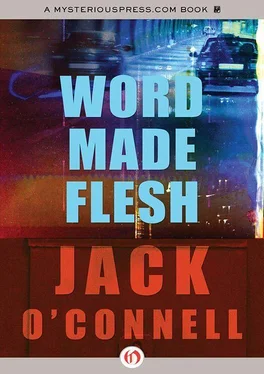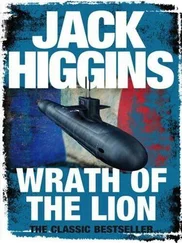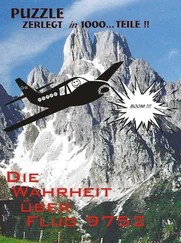He feels as if he’s sitting in a place of death. The precinct house is a mausoleum, like the Kapernaum mill. It has no electricity. No heat. No running water. And yet Lacazze continues to live here. The way a ghost would. Walking through empty rooms, floors littered, completely covered, with papers that no longer matter, hearing and disregarding the rats in the walls.
“We’re going to have to control this bleeding,” the Inspector says, in his ghost voice, this cross between Popeye the Sailor and John the Baptist on his last day in the desert. This is the sound that captivated Ceil? This is the noise that kept her entranced, prevented her from giving herself up to her husband?
This vibration, croaking, “I have a special balm that should help.”
Ceil sent a waiting EMT into the chamber to uncuff and tend to an unconscious Sonia Gorinski, then followed the Inspector outside and into the back of Bendix’s sedan. They led a convoy of prowl cars and two tactical vans south to the far side of the city, off the secondary road and into one of the zoning board’s no-man’s-lands that was part rural farm tract and part aborted industrial park.
Ceil hadn’t gotten much for her efforts. She couldn’t tell them the size of the Tung or the names of its leaders or what kind of firepower they might be holding. All she had was that for the past two or three weeks, the Tung had been holing up in the old Kapernaum mill and that Gorinski was to have rendezvoused with them tonight.
Ceil was uncomfortable with the information. The Tung using an abandoned bindery as their crib was too beautifully ironic for such a self-righteous crew. But the Dunot precinct autonomy was on the line, so she volunteered to play advance scout and enter the factory in the guise of the revolutionary torch singer. Then she kept her mouth shut through the rest of the sirenless race to the end of Rome Avenue.
The Kapernaum plant had been out of business for over a decade and perpetually for sale since the day the owners shut the doors. According to the various brokers who had handled the property, its main problem was location. Miles from civilization, it sat like a forgotten brick crypt in a clearing beyond the birch forest that served, in the warm weather months, as a little-used campground.
Bendix radioed for his forces to halt and fan at the tree line. Tactical went to work and organized the prowl bulls into support units, threading teams through the woods until they’d secured a perimeter around the factory.
On the jog to the building’s main entrance, with her Python drawn and pointing skyward, her movement announced by leaf crunch and lit by a close-to-full moon, Ceil tried to focus and push away the question of the last time she’d called Gilrein.
Lacazze kept watch over her through a night-vision scope and when she reached the mill doors, he gave word to start closing in the circle. The plan was a little too straightforward. The Inspector, still shaken from his encounter with the lounge singer, warned that these were full-blown pros inside the bindery, fanatics with training and the best weaponry of all — a willingness to die for a cause. For the first time in years, Bendix disagreed with the former Jesuit. The Chief still made the Tung for one more pack of ego-crazed, Canal Zone, boho smart-asses who’d gone around the bend sniffing psychotropic poppers along with their street theories. He made it clear that the last thing he needed was a firefight and a federal inquiry into why his SWAT boys unloaded a year’s worth of rhino bullets picking off a clique of untenured philosophy professors and a handful of their groupie undergrads. “Can you imagine the press nightmare?” he said. “I’d be seeing flash-bulbs for the rest of my short career.”
Ceil rang the visitor’s bell four short chimes, as Gorinski had instructed, then backed around the corner and sited on the doors ready for an ambush. In a few minutes, a young man, who in shadow resembled Farley Granger, poked his head out one of the doors and whispered, “Sonia?”
She flew at him, took him to the ground with her gun to his throat and a hand over his wet mouth. If this moron was their advance security, the Tung was even more bush league than Bendix had predicted. She turned her greeter over to the four shooters who’d advanced from the tree line and made her way inside and down to the basement, where Gorinski had promised the group would be gathering.
She found them in a cellar storage vault, all of them seated around a picnic table, slightly reminiscent of some Last Supper portrait if that scene had taken place in a fallout shelter and been commemorated on a black velvet canvas. But instead of tearing at unleavened bread and passing a clay jug of wine, the Tung was in the process of mass-assembling pipe bombs.
No one will ever know definitively whether what followed was accident or intention. Gilrein has always imagined a shaft of light, though he can’t name its source, cutting across Ceil’s face as she pressed her body against a brick support column and edged her face around its corner. He fantasizes that his wife made eye contact with one of the terrorists, perhaps the insane but charismatic leader later identified as a retired linguistics professor from MIT who’d taken to calling himself Blind Homer. Gilrein imagines that the look that passed between them lingered for a brittle, elongated second before their mutual screams — Ceil stepping into shooter’s stance, weapon extended, trained on the one who spotted her, shouting out, identifying herself as police officer and instructing immediate compliance. And Blind Homer simply yelling, the shock of discovery triggering his larynx into nonsensical alarm and his hands into a terminal mistake.
Did Ceil know the entire cellar chamber, packed to capacity with all brand of accelerants and explosives, including some percentage of imported plastique, was about to be detonated? Was she aware, even for a millisecond, that everything around her, the entire shadowy but stable physical existence that encapsulated her, was about to dissolve and be replaced, in the drawing of a single breath, into her own ground zero, a liquid and shifting world of immense, unthinkable noise and heat and absolute disruption, a plane of antistability, a dimension where skin and bone and even language have no analogous meaning?
Gilrein would like to believe she did not know. There are many nights when he would give the balance of his life just for the certainty that the explosion caught his wife unaware. That Ceil was dead before she knew she was about to die. But he can’t achieve this certainty. In fact, it’s as if his desire for it brings the opposite result, as if the more he yearns for Ceil’s ignorance in the moment before her demise, the more he has to believe that his wife saw the end coming plainly and clearly and without any illusions.
The entire rear of the Kapernaum factory blew outward and collapsed. The roof came down. Glass fragmented into razor-thin shards and the concussion carried them like pollen through the woods. Some of the perimeter cops reported seeing the fabled black-and-orange mushroom cloud, but most were too busy rolling and tucking and covering their skulls with their arms. A hash of debris made of splintered brick and metal and wood was thrown a hundred yards beyond the mill and the roar of the holocaust shattered the eardrums of some of the closest survivors.
The accuracy of the final pathology reports has always been disputed, but lacking a better count, the department files will always report eighteen casualties: thirteen Tung, some of whom will always remain unidentified, and five police officers — Ceil and her back-up unit.
As in most incendiary deaths, the descriptions of Ceil’s remains are best left on the loop of magnetic tape that spooled around, almost noiselessly, in the autopsy room of the county morgue and recorded the dispassionate and clinical words of the city’s coroner. Gilrein had no need to ask questions when he signed the release form for his wife’s dental records.
Читать дальше












